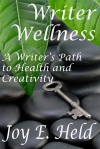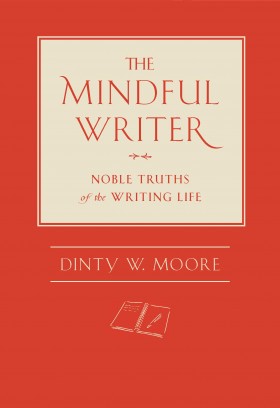Tuesday Tickle at Writer Wellness courtesy of a great post from Bob Mayer and Cool Gus Publishing. Enjoy!
BLOG
Friday Feast: ‘Shrooms Va-va-voom and Friends
Not everybody is a mushroom fan, but this baked stuffed portabella has been known to win over a few non-fungus eaters!
‘Shrooms Va-va-voom
Recipe by Joy Held
2 large portabella mushrooms, wiped clean with the stems cut out and the gills scraped out
¾ cup fresh spelt bread crumbs
½ cup low fat mozzarella cheese
¼ cup grated parmesan
¼ cup minced onion
¼ cup finely chopped parsley
½ tsp onion powder
½ tsp garlic powder
½ tsp dried thyme
2 Tbls melted butter, salt free
1 Tbls olive oil
Salt and pepper to taste
Mix the bread crumbs, parmesan, onion, parsley, butter, and spices together well in a bowl. Cave out the mushrooms a little if necessary to make room for the filling. Divide filling evenly between the caps and drizzle with olive oil. Bake in a 350 degree oven for 15-20 minutes. In the last five minutes, turn off the oven and turn broiler on high. Sprinkle mushrooms with mozzarella and broil to desired melty deliciousness. Don’t take your eyes off! Burns quickly!
After this treat, take a walk around the block then settle down and visit these web friends of mine. Tell ‘em I said hello. And feel free to share this recipe and spread the fungus among us (couldn’t resist.)
http://pentopublish.blogspot.com/2011/07/understanding-writing-mommy-mind-with.html
Hot romance scribe MEREDITH ELLSWORTH
http://www.meredithellsworth.com/
Fav social media chicka KRISTEN LAMB
 Meanwhile, remember to look for a digital or print copy of Writer Wellness, A Writer’s Path to Health and Creativity at Cool Gus Publishing.
Meanwhile, remember to look for a digital or print copy of Writer Wellness, A Writer’s Path to Health and Creativity at Cool Gus Publishing.
Have you subscribed to this Writer Wellness blog yet? Get email updates when a new post is added. Click “subscribe” and leave your email. That’s it and thanks in advance!
Be well, write well.
Joy E. Held
How Cancer Influenced a Ghost’s Tale by Author Juli D. Revezzo
Here is a story about how life impacts art. jh
Door, Propped – Wide Open
Good tip on keeping your yoga mat warm! Enjoy. jh
New Year’s Resolutions? What Is Real Change?
Change can be so messy sometimes, but a necessary of life. This is a great thought about the “moment of enlightenment”. Read on!
Brave New Bullying: Goodreads Gangs, Amazon Attacks—What Are Writers to Do?
Sharing this post because of its general applications and importance in the cyber world and in the real trenches of life. And because I want to support a friend. Be well, write well. jh
Friday Feast: Too Much Salty Beast
DAY EIGHT WITHOUT ELECTRICITY. ANOTHER MOTEL NIGHT. Have eaten “off diet” in a major way since the storm hit last Friday. I usually pack blood type diet specific foods for myself and my husband when we’re travelling. Didn’t get the opportunity this “trip.” Everything in the refrigerator and both freezers went rancid after the first couple of days, and our blood type diet supplies and supplements had to be dumped. I hated throwing all that food away. It felt so wrong. But we are not going hungry. The restaurants in the area obviously had priority as far as getting back online and just about everything is open again. So eating out several times more than usual has wreaked havoc on my system and my psyche. But I’ve been grateful that there has been food. Although my husband absolutely refused to be served the turkey Spam I was so thrilled to find in the store. I don’t blame him. The sodium content would have been the end of both of us. So I didn’t eat any salty beast today and feel some better except for this riduculous cold or sinus infection or whatever it is. I can’t breathe and my eyes are so itchy and red I look like I’ve been in a fight. My throat is so hoarse and I’m so congested that when I called the motel to make reservations for the weekend, she thought I said my name was Boy Help. I bought a homeopathic nasal spray recommended by my asmatic sister who said, “It will sting a little bit at first.” I felt like someone had set off two bottle rockets up my nose. That’s more than a little bit of sting, but I digress.
The good news is that the insurance adjuster was a jolly and smart fellow this morning. The weather report he was given to reference said we were hit with 91 mile an hour winds or a category two hurricane force storm. We’ll see what he says. Still waiting on the electric company and the tree fellow. Although the poor tree guy has been so busy in the neighbor this last week, I would prefer he took the weekend off to rest. The last thing I need is a sleepy man in a bucket lift forty feet in the air swinging a chain saw around above my yard. So we wait and eat less beast.
Thanks for your thoughts and comments and prayers. They’re helping.
Be well, write well.
“Everyone wants to jiggle less.” CNN reporter
Thursday Thot: My Idea Of Hell
DAY SEVEN WITHOUT POWER. THIRD NIGHT IN A HOTEL. I write this from a hotel room for the third night in a row after losing electricity like a million other people in last Friday night’s storm. Some of you have been waiting to hear from me for one reason or another (contracts, proposals, grades!) and I had every intention of getting it all to you until my 114 year-old house was slammed head-on by high winds and rain. I’m still waiting on the power company to restore my electricity, the insurance adjuster to come and tell me what I already know (You have a mess to clean up here,) and the tree removal fellow to spend about six hours to chop, drop, and chip ALOT of trees from my yard. We have fence, roof, gutter, trees, and power damage. A piece of slate roof was hurled downward so fast it’s impaled on the prongs of our antique iron fence. No one was hurt, but we are pretty bothered by it all. And apparently this many trees hitting the ground all at once has unleased a boat-load of pollen. I can hardly breathe or see through my red, itchy eyes.
But I found out in the last six days that what I thought was my idea of hell (no utilities, no cash, no gas in either car, one day of cat food, no ice, very little technology) was more empowering than over whelming. Yeah, I’m exhausted, and I’m pretty tired of playing “pioneer woman” with the candles and oil lamps, but I discovered a resourse I was unaware of. I’m coping and working with what I have instead of grabbing for what I don’t have. It took a couple of days but food, water, and ice trickled in, and while I waited I journaled and journarled and journaled. It obviously has kept me calm and rational and given me a record of what’s been going on.
Everybody is fine. It hasn’t been a picnic by any stretch of the imagination, and many people are dealing with worse than what my husband and I experienced. But I’ll be damned if I don’t own a gi-normous generator by this weekend. Keeping the wine cold was near impossible without any ice.
Be well, write well.
Monday Meditation: The Mindful Writer Is A Must Read
 Summer is when I tackle the TBR (to be read) pile of books and magazines I’ve accumulated during the school year. My teaching schedule is lighter in the summer and like a lot of writers, I use the summer to catch up on my reading. And go to writing cons!
Summer is when I tackle the TBR (to be read) pile of books and magazines I’ve accumulated during the school year. My teaching schedule is lighter in the summer and like a lot of writers, I use the summer to catch up on my reading. And go to writing cons!
One book in particular has captivated my attention early, and even though I’ve read it twice already (it’s a small book,) I just keep coming back to it. The newest book from creative non-fiction writing professor Dinty W. Moore, THE MINDFUL WRITER, NOBLE TRUTHS OF THE WRITING LIFE, is a pocket-sized treasure full of good stuff I’ve found insightful, thought provoking, and entertaining. This is not a book review, by the way. It’s just a blog about what’s on my mind. And since books in many forms are usually always on my mind (a common writer’s affliction,) I’m tying Moore’s book in with today’s topic of meditation.
 THE MINDFUL WRITER is a clever weaving together of the Buddha’s Four Noble Truths with the writing life. Moore’s inventive perspective has created “The Four Noble Truths For Writers.” But first the Buddha’s list:
THE MINDFUL WRITER is a clever weaving together of the Buddha’s Four Noble Truths with the writing life. Moore’s inventive perspective has created “The Four Noble Truths For Writers.” But first the Buddha’s list:
1.Life is dukkha (suffering, dissatisfaction.)
2.The cause of dukkha is our desire.
3.It is possible, however, to end this desire.
4.The way to end it is through the Eightfold Path: right views, right aim, right speech, right action, right living, right effort, right mindfulness, right concentration.
Moore’s list (abbreviated because I highly recommend this book be read by all writers at any level):
1.The writing life is difficult,…
2.Much of this dissatisfaction comes from…
3.There is a way to lessen the disappointment…
4.The way to accomplish this is to make both the practice of writing and the work…
At first glance, many writers might pass over this small epistle in favor of something else more “relevant.” What is more relevant to a writer, or to anyone for that matter, than a manageable size helping of gentle guidance and goodwill written by a writer who knows what we all know. It’s a journey. Wear comfortable shoes and pause every once in a while to savor the moment.
 Meanwhile, remember to look for a digital or print copy of Writer Wellness, A Writer’s Path to Health and Creativity at Cool Gus Publishing, http://www.coolguspublishing.com.
Meanwhile, remember to look for a digital or print copy of Writer Wellness, A Writer’s Path to Health and Creativity at Cool Gus Publishing, http://www.coolguspublishing.com.
Have you subscribed to this Writer Wellness blog yet? Get email updates when a new post is added. Click “subscribe” and leave your email. That’s it and thanks in advance!
Be well, write well.
Copyright Joy Held 2012. All rights reserved.
Thursday Thot: Graduation Gifts
If you ask the graduate, the last thing they want is another book. After years of studying and taking tests, many graduates associate books with stress. But after the dust settles on the cap and gown and the tassel swings happily from the rear view mirror, the grad will appreciate having these books on the shelf when they look around for guidance and inspiration. Every graduate wants money, work, and fun while they follow their chosen path of endeavor. Here are three titles that would make great gifts for the new graduate.
Money
 The Prosperous Heart by Julia Cameron is her latest book meant to emphasize and streamline our relationships with money. We learn our money matters from the modeling we witness in family settings as we grow up. How our parents and siblings handled money has a great impact on the decisions we make about making, spending, and saving money as adults. It isn’t as simple as seeing a parent save money and then we in turn save money the same way. A lot of the time we act in reverse of what we experienced with money and family. Cameron’s book details a twelve step process to help anyone grow a new relationship with money. Simple practices such as writing down every single penny spent every single waking day for the duration of the twelve weeks demands discipline and the willingness to look back on what we spend our money on. It’s a step that indelibly engraves on one’s psyche the words, “Do I want this, or do I need this?” Knowing the answer can save a lot of money.
The Prosperous Heart by Julia Cameron is her latest book meant to emphasize and streamline our relationships with money. We learn our money matters from the modeling we witness in family settings as we grow up. How our parents and siblings handled money has a great impact on the decisions we make about making, spending, and saving money as adults. It isn’t as simple as seeing a parent save money and then we in turn save money the same way. A lot of the time we act in reverse of what we experienced with money and family. Cameron’s book details a twelve step process to help anyone grow a new relationship with money. Simple practices such as writing down every single penny spent every single waking day for the duration of the twelve weeks demands discipline and the willingness to look back on what we spend our money on. It’s a step that indelibly engraves on one’s psyche the words, “Do I want this, or do I need this?” Knowing the answer can save a lot of money.
Work
 The Mindful Writer, Noble Truths of the Writing Life by Dinty W. Moore is a concise and wonderfully compact book that anybody can appreciate. Writers are everybody and everywhere. If the graduate is going into any professional setting for work they will eventually be asked to write something; a report, an email, a letter. This little book is inspiring and handy. It’s great for writers who will love the many quotes from other writers. Moore’s comments on each quote are centered around the sense that his study of Buddhism has influenced his writing more than his writing has influenced his study of Buddhism. The Noble Truths are a twist on Buddha’s principles aimed at the writing crowd. But who wouldn’t be better off taking the sound advice to avoid disappointment by grasping and being satisfied with what we have rather than what we don’t have? “Do I want this, or do I need this?” Knowing the answer can save a lot of stress.
The Mindful Writer, Noble Truths of the Writing Life by Dinty W. Moore is a concise and wonderfully compact book that anybody can appreciate. Writers are everybody and everywhere. If the graduate is going into any professional setting for work they will eventually be asked to write something; a report, an email, a letter. This little book is inspiring and handy. It’s great for writers who will love the many quotes from other writers. Moore’s comments on each quote are centered around the sense that his study of Buddhism has influenced his writing more than his writing has influenced his study of Buddhism. The Noble Truths are a twist on Buddha’s principles aimed at the writing crowd. But who wouldn’t be better off taking the sound advice to avoid disappointment by grasping and being satisfied with what we have rather than what we don’t have? “Do I want this, or do I need this?” Knowing the answer can save a lot of stress.
Fun
 Writer Wellness, A Writer’s Path to Health and Creativity by yours truly has the disadvantage sometimes of having a title by my own design that makes the book appear limited in application. There is much in the book that anybody can enjoy and use to add creativity to life and work. Ideas about journaling, fitness, relaxation, nutrition, and creative play are good for the soul.
Writer Wellness, A Writer’s Path to Health and Creativity by yours truly has the disadvantage sometimes of having a title by my own design that makes the book appear limited in application. There is much in the book that anybody can enjoy and use to add creativity to life and work. Ideas about journaling, fitness, relaxation, nutrition, and creative play are good for the soul.
Of course, it won’t hurt to slip a twenty dollar bill between the pages of the books before you gift the grad.
Did you get a book for graduation that has served you well? Please leave a comment and tell us about it.
Meanwhile, remember to look for a digital or print copy of Writer Wellness, A Writer’s Path to Health and Creativity at
Have you subscribed to this Writer Wellness blog yet? Get email updates when a new post is added. Click “subscribe” and leave your email. That’s it and thanks in advance!
Be well, write well.


